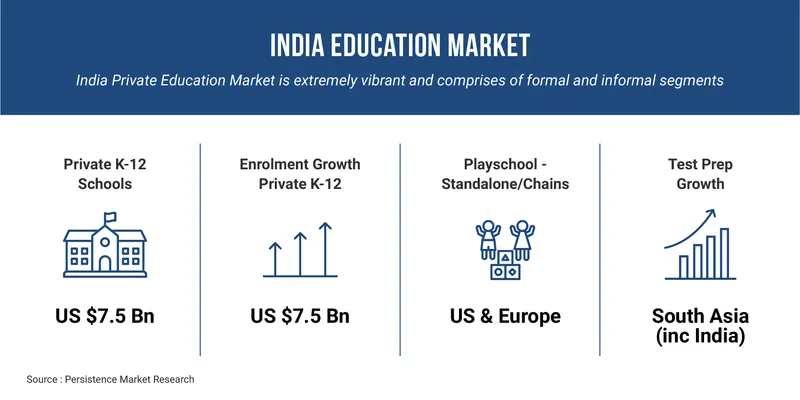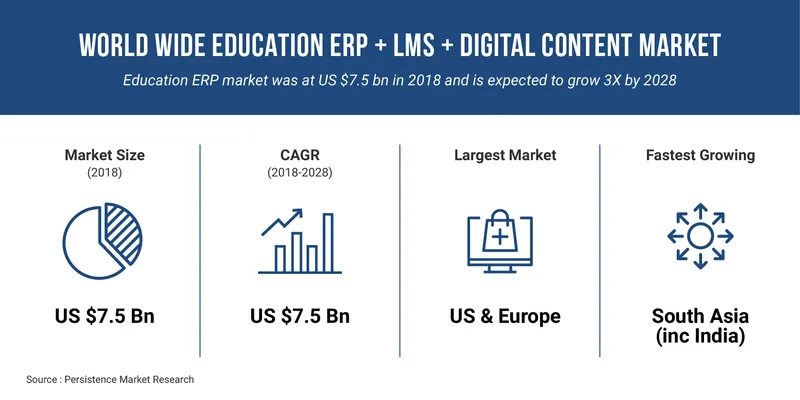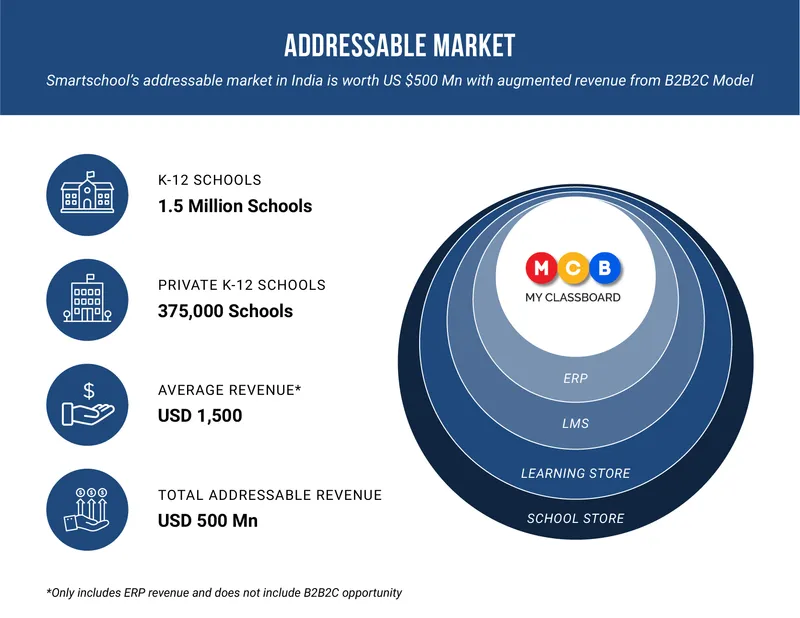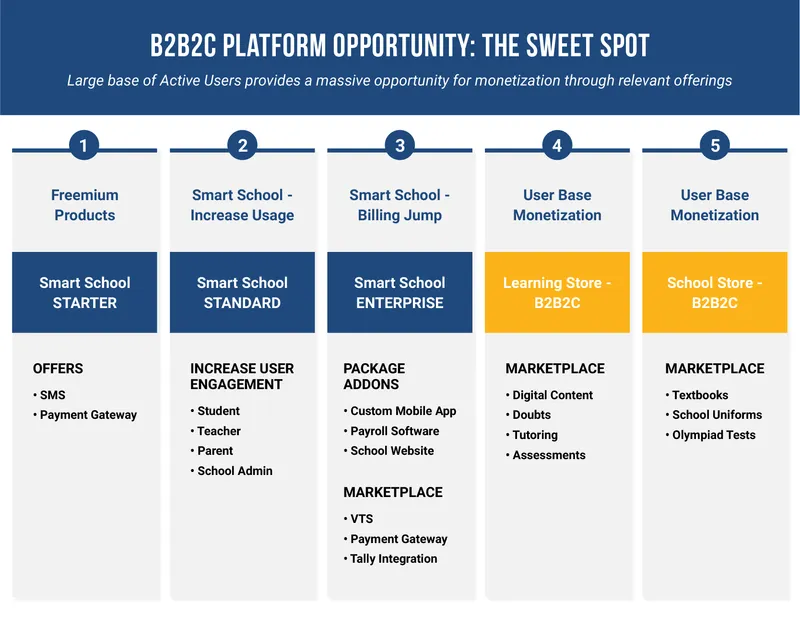Beyond just a learning app: MyClassboard’s software was the need of the hour for schools during the pandemic
From a smart school ERP software to creating a platform with a suite of applications to make education accessible to all; here’s how My Classboard onboarded 2,500 schools across India and served over eight lakh online classes whilst launching a content-rich learning management system.
India’s online education system got a shot in the arm when the COVID-19-induced lockdown shut schools and colleges for months on end. Although the edtech sector in the country was booming with learning apps like BYJU’s, Vedantu, Cuemath, and others leading the space, it was still a long road to get students habituated to digital classrooms, and schools to follow an electronic operating model.
But one year since the COVID-19 pandemic began, the new normal in the education sector has changed the way students and teachers operate.
“The edtech sector has now matured, and the future is promising as the primary consumers - both parents and students, have started experiencing edtech products fully. They are now the drivers,” says Ajay Sakhamuri, Founder, MyClassboard.
Founded in 2010 in Hyderabad, MyClassboard (MCB) is a SaaS-based school management software that offers a suite of features like all-in-one school ERP, a comprehensive learning management system for all educational boards, and a school supplies marketplace.
Ajay says that even though MCB has remained profitable since inception, the demand for its product was not upto his expectation. However, post the nationwide lockdown due to COVID-19, the demand skyrocketed and since March 2020, MCB saw a surge in school sign-ups, and has since served over 2.6 million online classes.

Image Credits: YS Design
“During the lockdown, we integrated the school data at our backend with video conferencing apps like Zoom, Google Meets, and Microsoft Teams for enabling online classes. Hence, the schools registered with us were spared the hassle of creating a new system to operate in the digital world,” Ajay says.
He adds that right from marking students’ attendance to conducting online classes, fee transfer, assignments, digital diary, conducting exams, and everything else that falls under a school’s day-to-day activity, can be done through MCB’s suite of apps for schools, teachers, and parents through artificial intelligence (AI), machine learning (ML), and visualisation tools.
MCB aims to be a one-stop solution for all educational needs, and anything from hardware to software that a school requires can be integrated with the platform.
The product
An ex-Deloitte employee, Ajay always wanted to do something in the edtech sector along with his father who was also an entrepreneur. But luck didn’t favour him as he lost his father in 2007.
He decided to follow the vision of his father, and started MCB as a software company focused on schools. Ajay says that it took years of hard work but today he has transformed the software company into a platform that not only empowers schools to manage and monitor the day-to-day operations of every department effectively, but also enables students to access vast educational content and improves parent-school communication.
Right from admission, academics, administration, finance, parent communication to HR and payroll, MCB Smart School ERP platform has over 40 features that covers all aspects of school operations seamlessly.
During the pre-COVID-19 days, there was high demand for tracking school vehicles for the safety of students, and Ajay says this will again be in demand when the schools reopen in India. Hence, MCB has also enabled this feature on its app so parents can track the school vehicle, offering a security system on its platform.
The Learning Store or learning management system (LMS) integrated on MCB helps students access content in various formats. It provides video courses, tutoring, ebooks, and masterclasses for extracurricular activities,making LMS one of the largest content pools to have a variety of content integrated on an app.
“We have also come up with MCB.Live which is a learning resource library. It is available for schools, students, and teachers through a subscription,” Ajay tells SMBStory.

Image credits: YS Design
In 2017, MCB also came up with a School Store in collaboration with Amazon as a marketplace for school supplies like books, uniform, stationery etc.
MCB assigns every school a key account manager who helps schools and students with any queries, and handholds them through the process.
The rising curve
After its launch in 2010, MCB first onboarded K-12 Techno. Two years later, Ryan Group joined the platform, and since then, there has been no looking back.
In 2014, MCB launched its iOS and Android apps, scaling its business model. By 2015, MCB had over one million students on the platform, that crossed 1.4 million in 2019 with Narayana Group, 10 branches of Delhi Public School, Kangaroo Kids, Sri Gayatri Educational Institutions, Orchid School, and Gems Education among others as its leading clients across India.

Image Credits: YS Design
According to Ajay, there are 2,500 schools across 200 cities with 1.5 million students on the MCB platform as of 2020. There is a 95 percent customer retention, which he says is considerably great in the edtech sector. MCB’s annual revenue touched Rs 20 crore in FY 2019-2020.
“The edtech sector has always had a promising future, but COVID-19 accelerated its pace in India. However, the sector did not grab much attention from investors and so, not many companies have made a great amount of money,” Ajay says.
He adds that until 2015, pitching the idea of digitising education was a big challenge, but in recent years, the market became more open to it.
Earlier this month, MCB raised a pre-series A funding round of Rs 4.5 crore from ICICI Bank, which Ajay says the company plans to use to scale from 2,500 schools to 10,000 schools, and serve five million students in the next 12-24 months.
Seizing the opportunity
According to Persistence Market Research, the Education ERP market was worth US $7.5 bn in 2018, and is expected to grow 3X by 2028. The top three factors driving the growth of the market are increase in the number of institutions, digital transformation of these institutions, and of course, mobile phones, internet, cloud, and other enabling technologies.

Image Credits: YS Design
MCB’s SaaS solution is relevant for pre-schools, formal K-12 schools across CBSE, ICSE, State Board, IB, IGCSE and test prep institutions. It also caters to preschools, daycare centres, and tuition centres where MCB works on a per-student basis model. For Smart School ERP, the company charges the school between Rs 300-Rs 500 per student annually.
Its revenue model from the school store is based on charging 20 percent to 30 percent commission on supplies. Talking about the school fee transactions through MCB, Ajay says,
“Before demonetisation, the transactions were worth hardly Rs 5 crore, but post the lockdown, we have touched close to Rs 8,000 crore worth of transactions.”
The ultimate goal
Though the edtech sector has grown significantly, it has majored in the learning space. Ajay says that MCB’s content library and online learning technology are its prominent features.
“We are not a or for schools, we are like the vertical for education and I do not want to miss this huge opportunity in the market.”
Ajay adds that he is planning to expand MCB’s learning management system, and is in talks with publishers like S.Chand, Navneet, and others to roll out their digital content through integration with MCB. With this, textbooks and other study materials can be launched digitally.
Another important feature which MCB plans to bring out is MCB Finance, which would be a marketplace of sorts for student loans. Ajay is also planning to integrate gamification on MCB to make learning game-oriented.
Edited by Anju Narayanan












